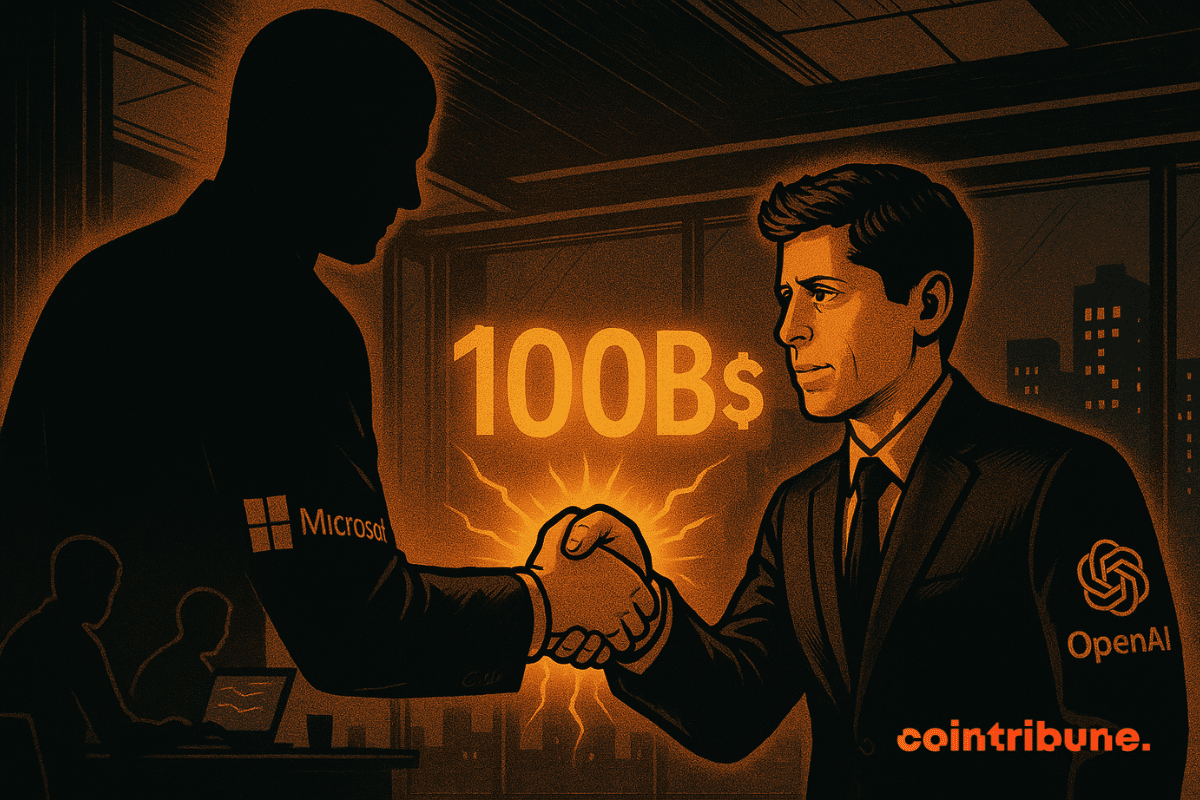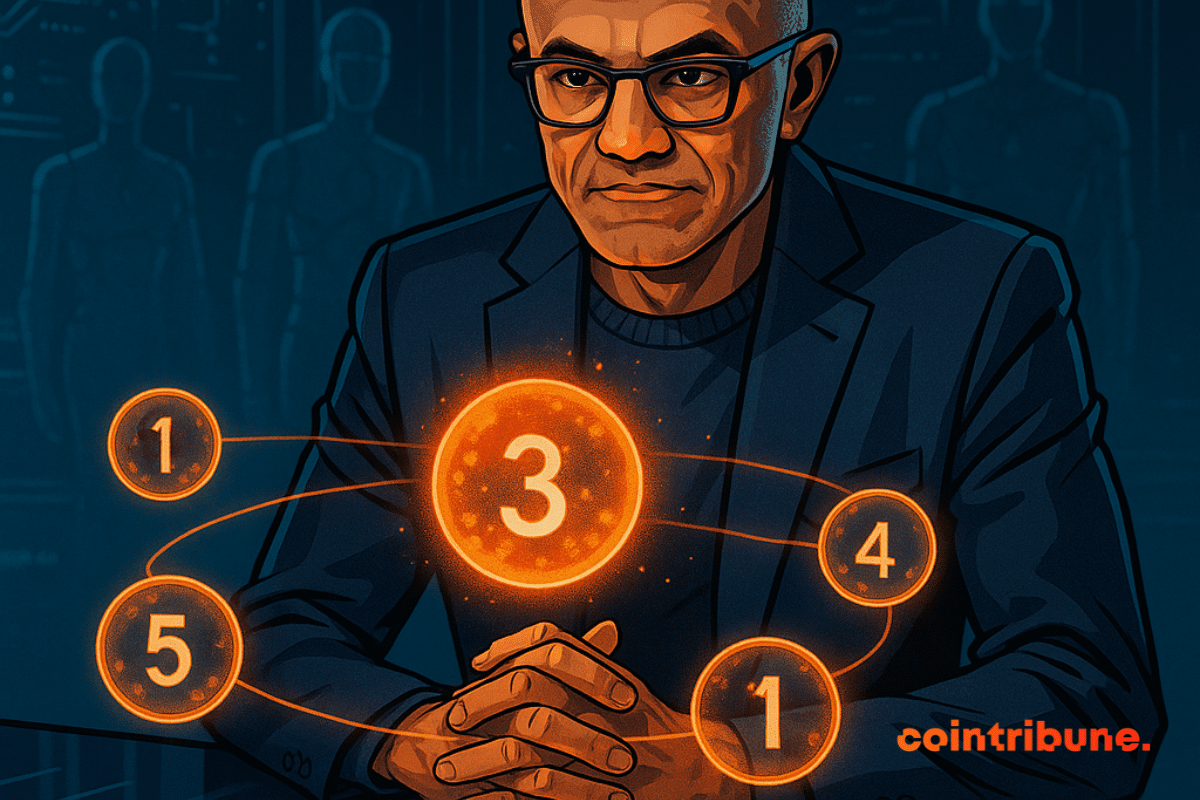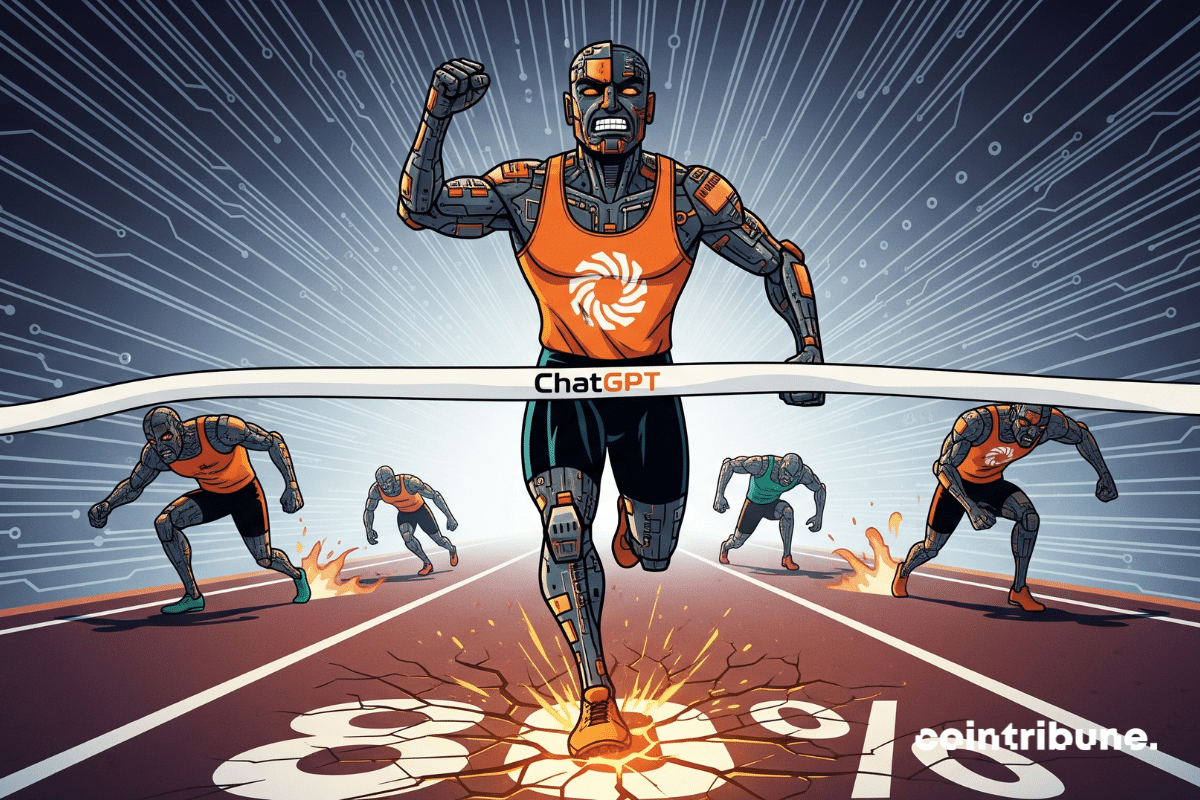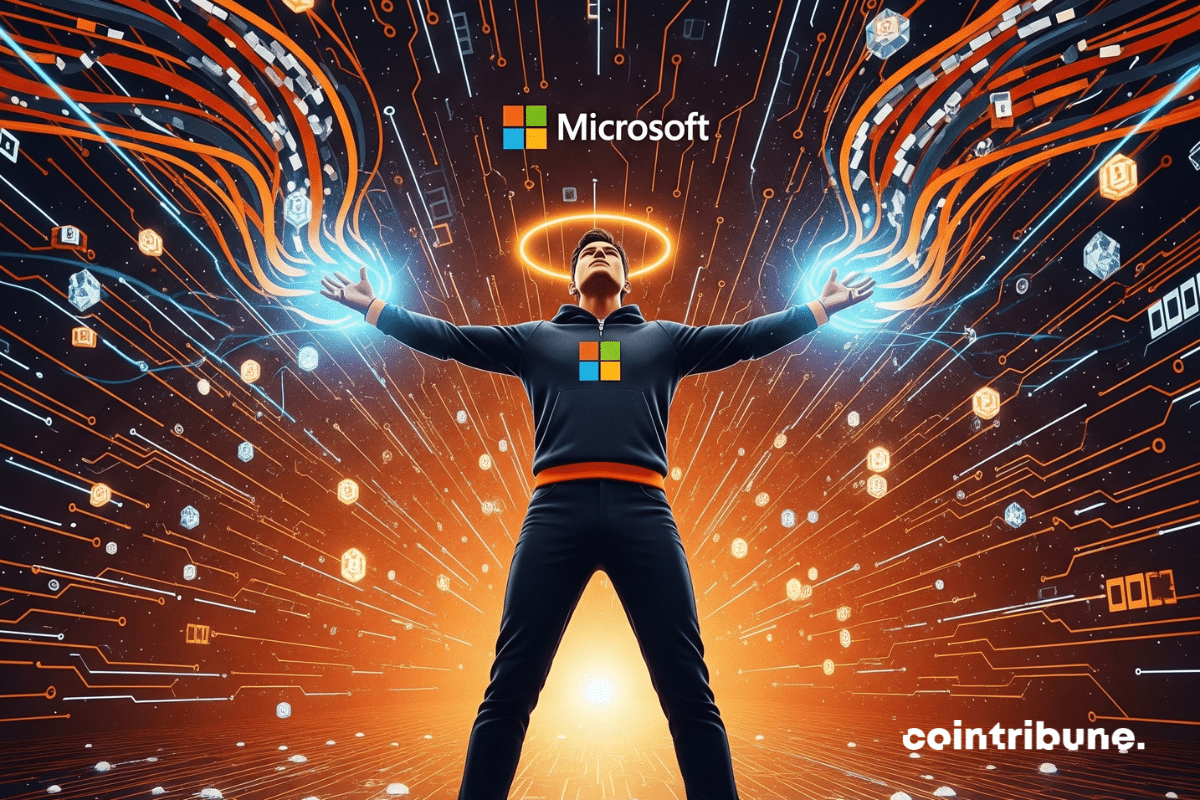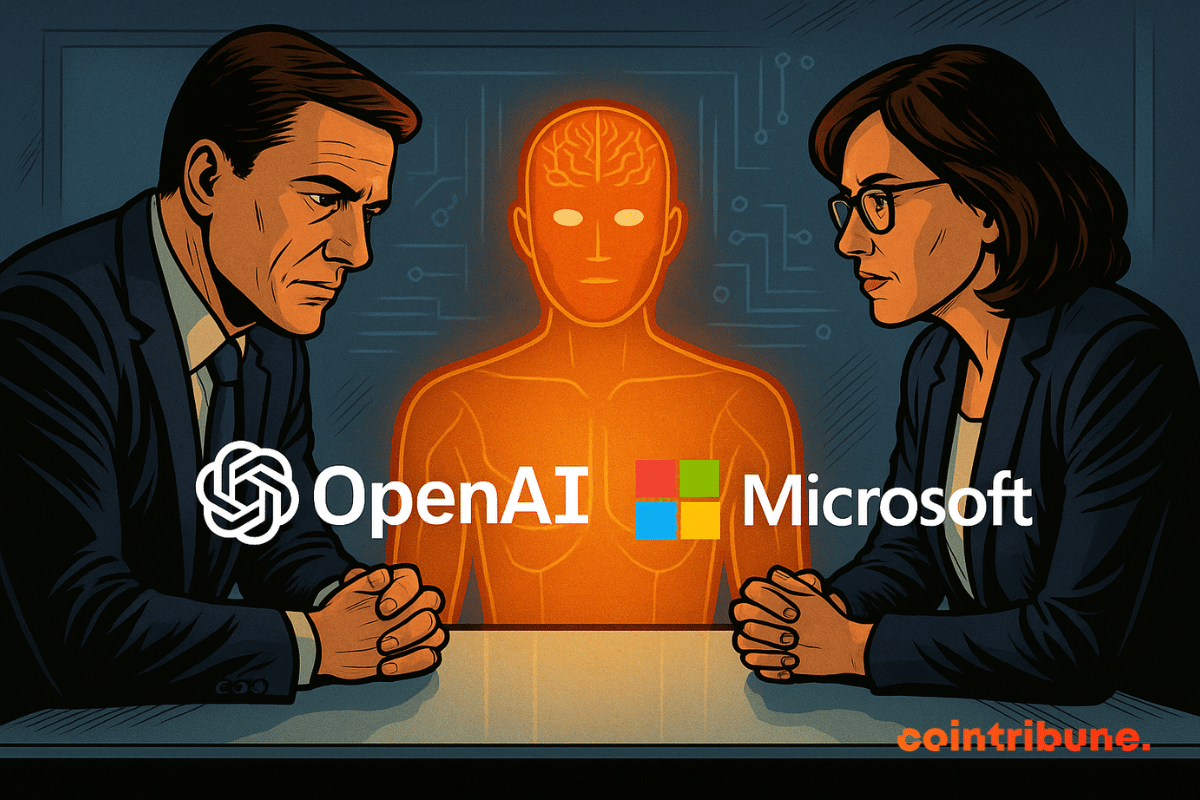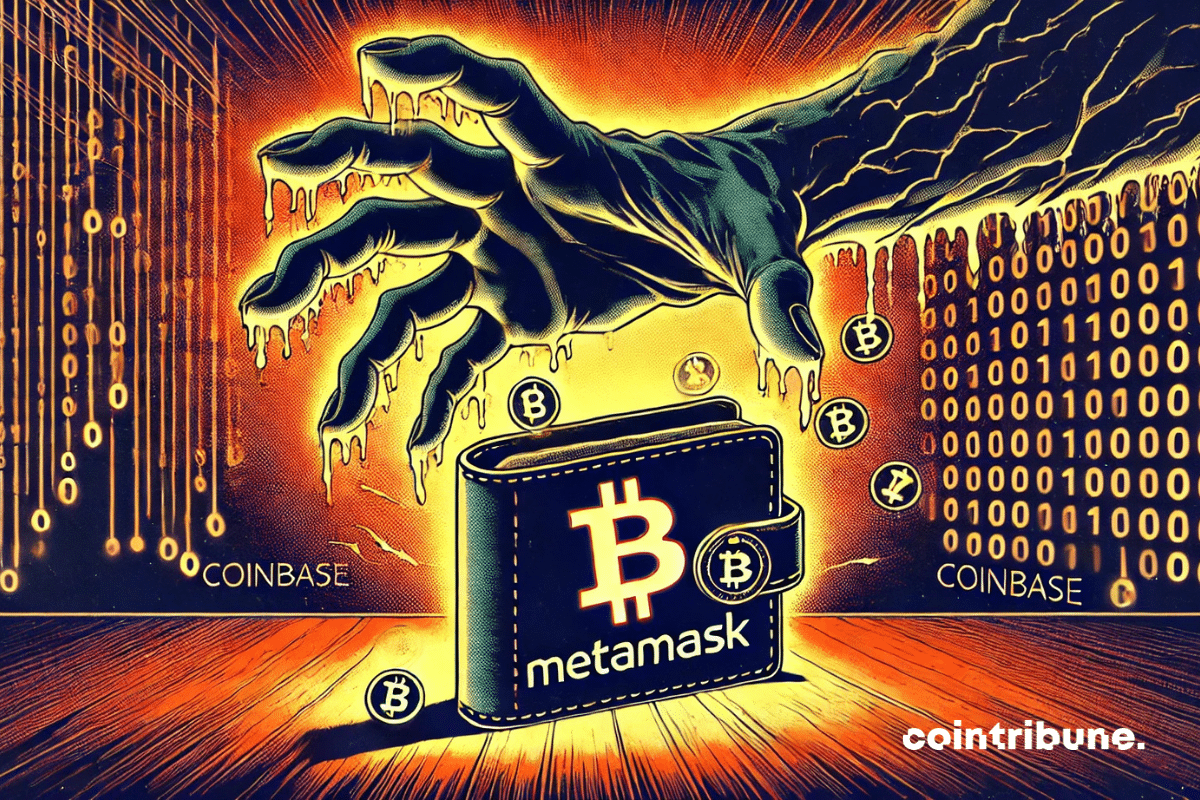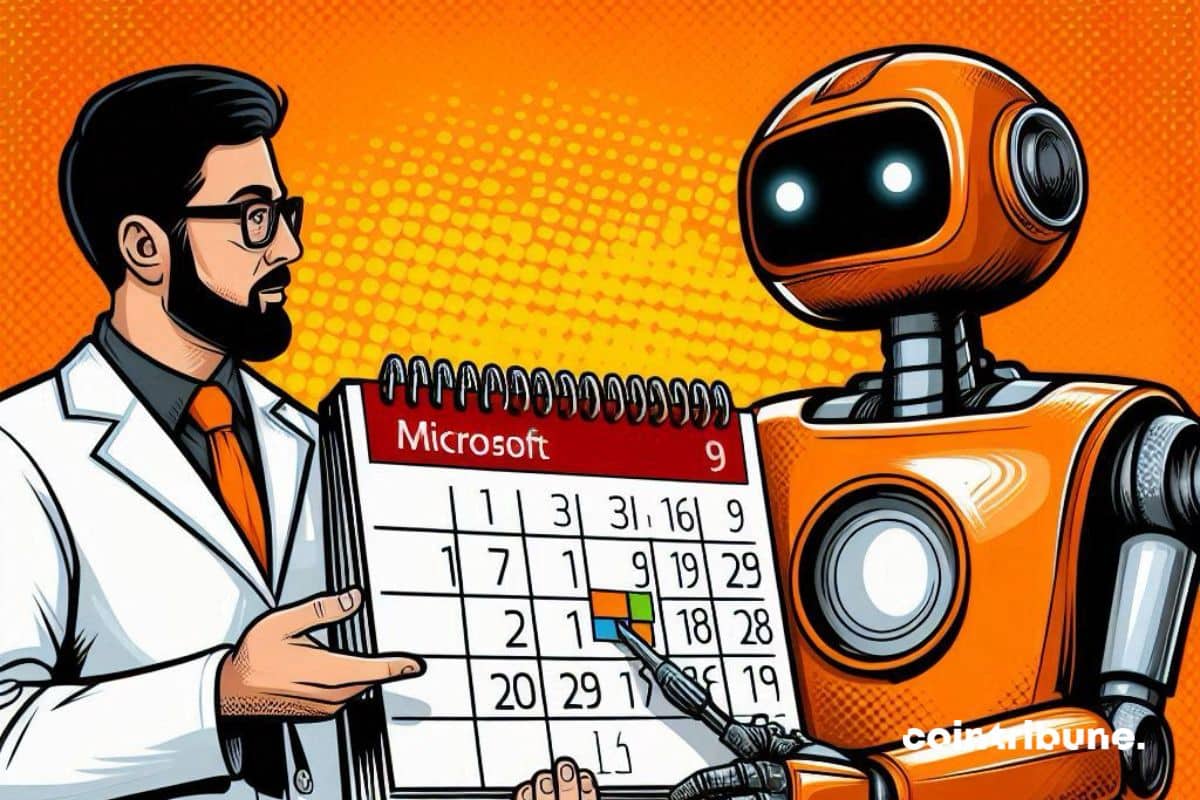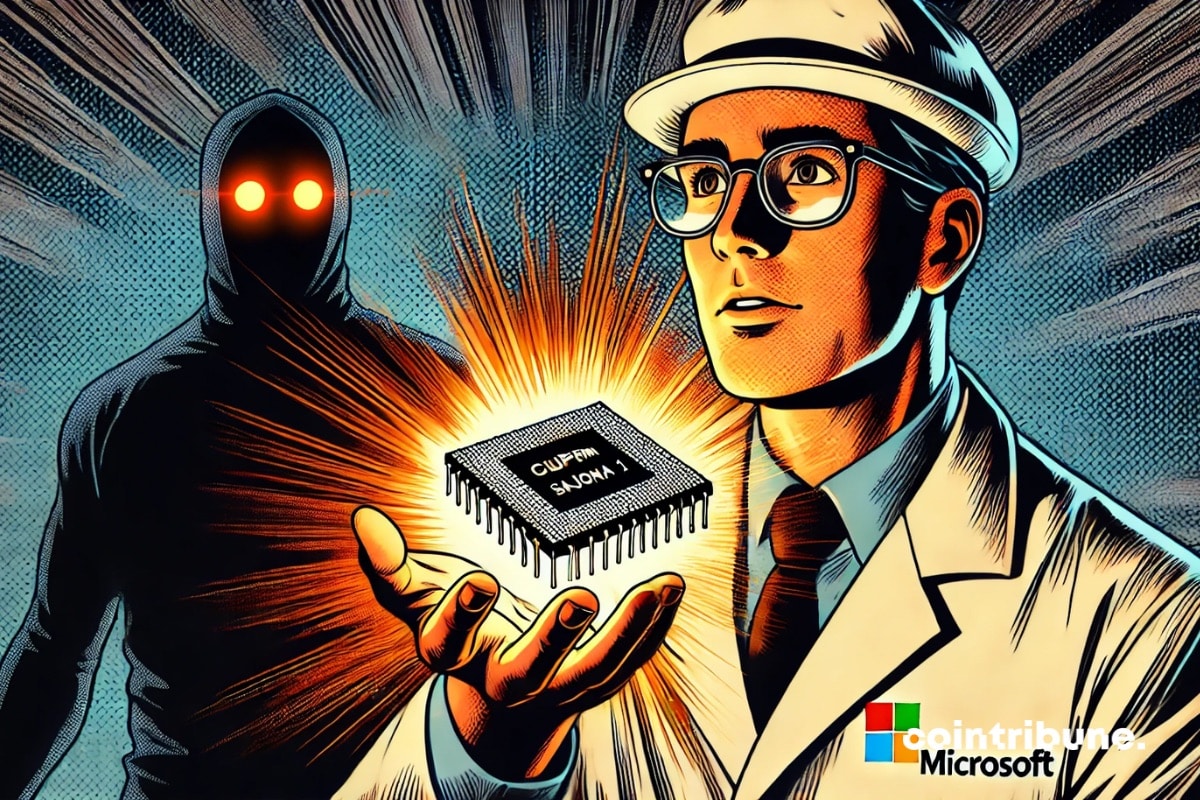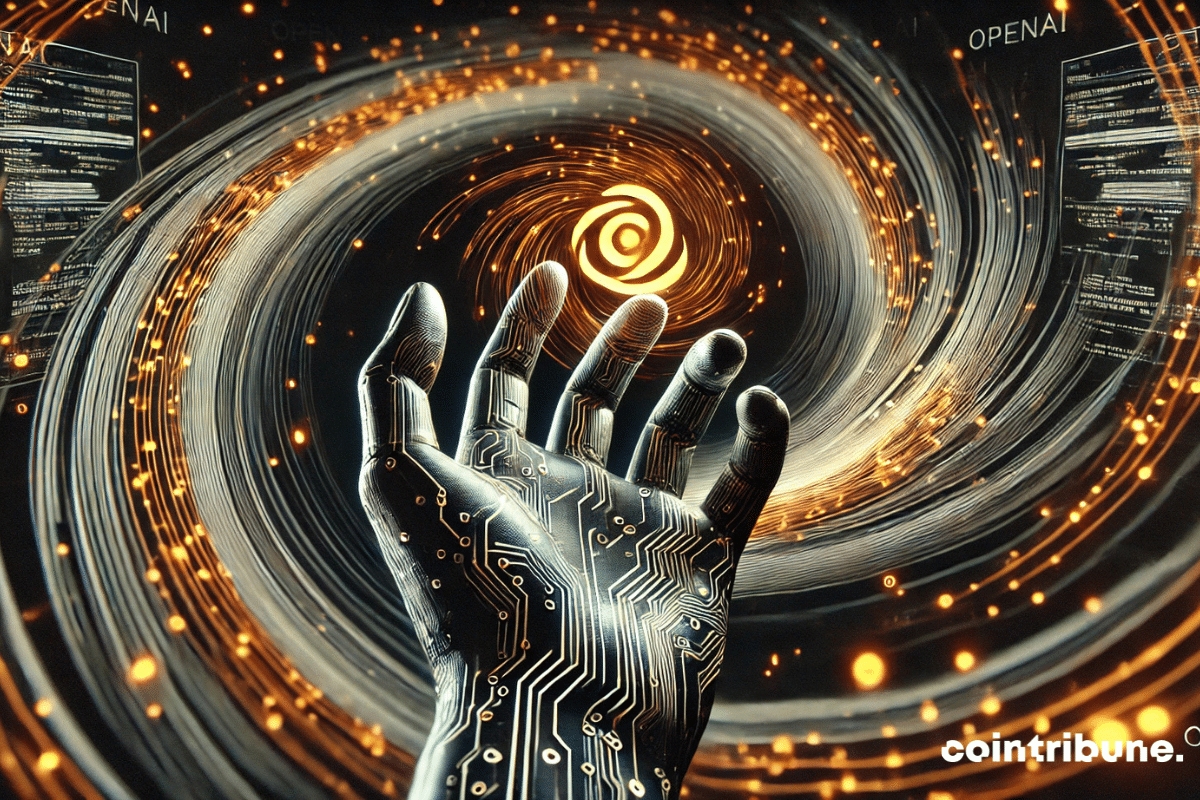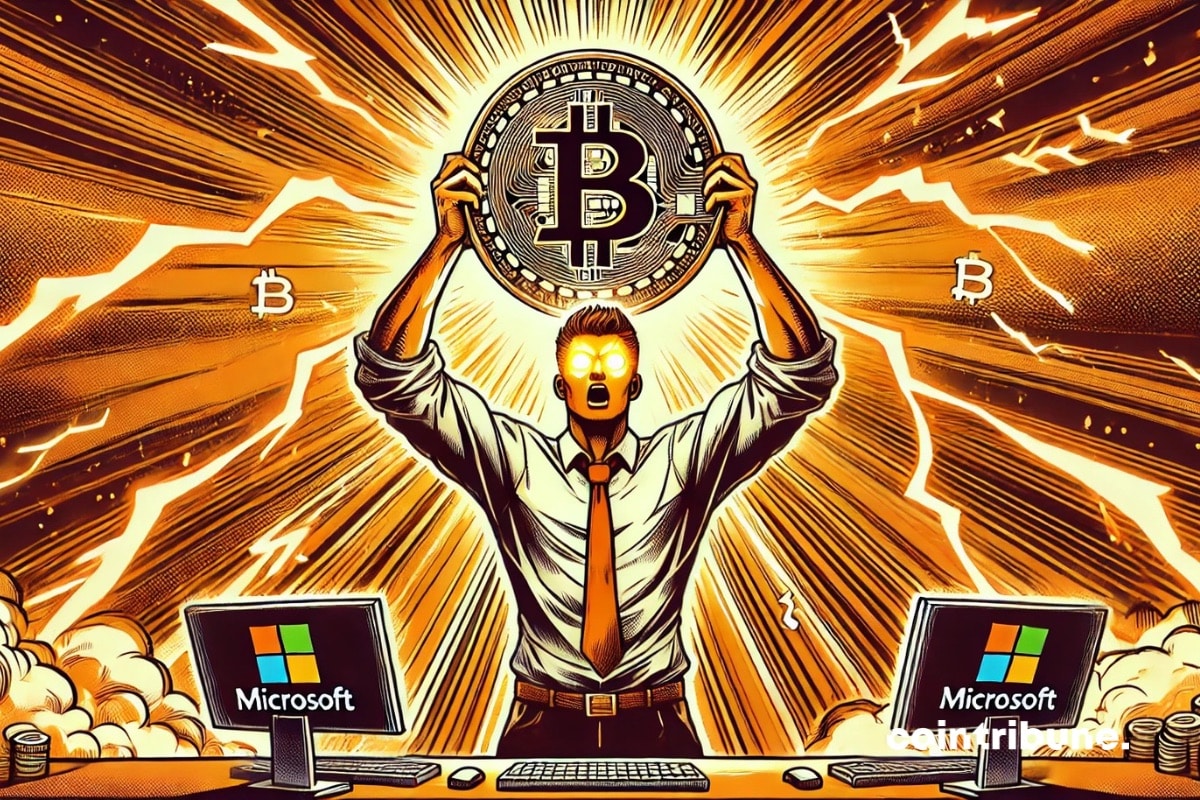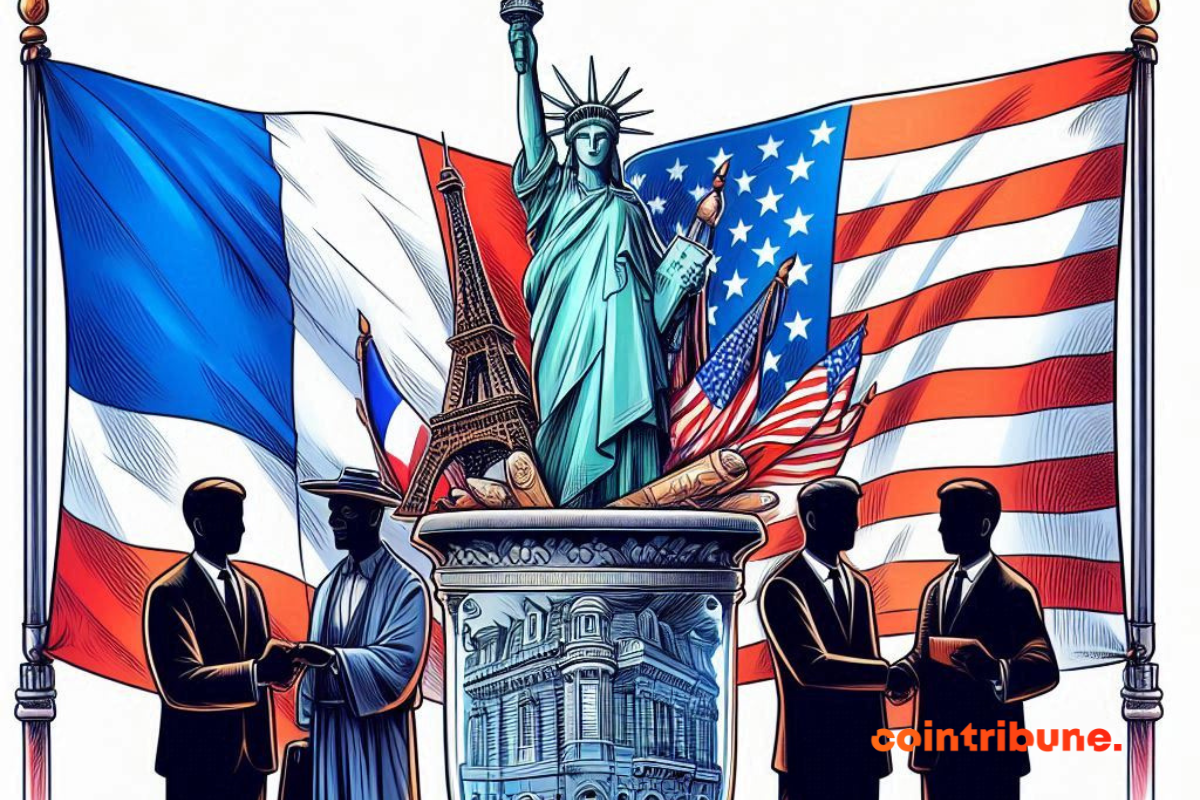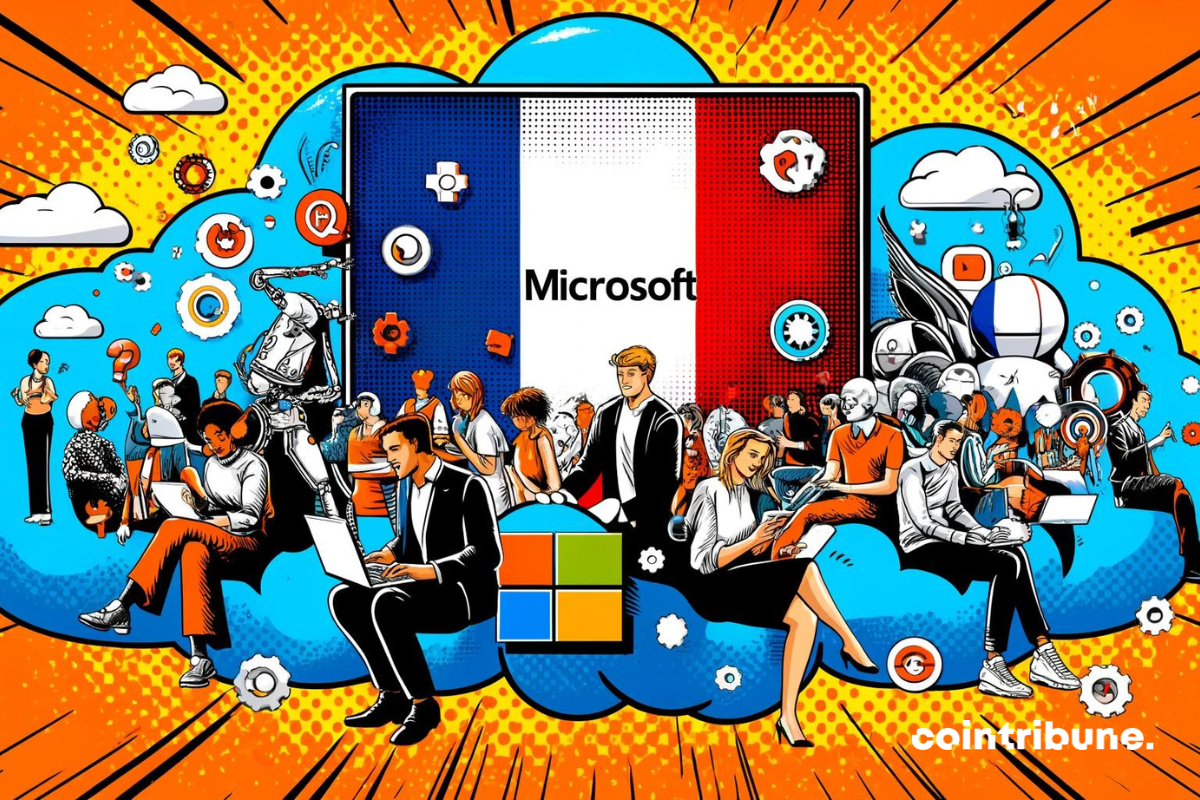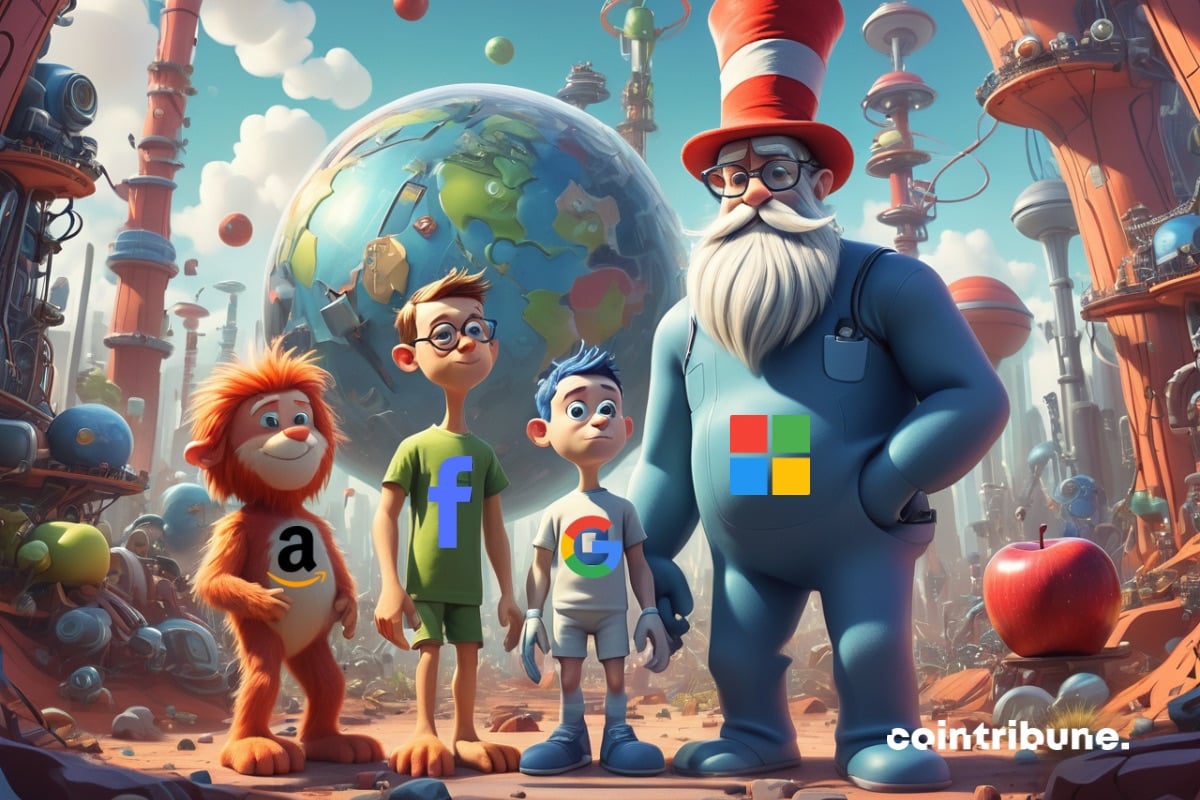OpenAI wants more than a partnership: under the guise of AI and philanthropy, the company sharpens its independence from Microsoft. Throne preserved or future masked rivalry?
Microsoft
Artificial intelligence is no longer an option for leaders; it has become an extension of their executive brain. While many employees fear that AI will eliminate their jobs, CEOs use it as a strategic lever to stay competitive. Satya Nadella, head of Microsoft, recently revealed the five GPT-5 prompts he inserts daily into Copilot to boost his work. Concrete evidence that, even at the top, AI is not a gadget but a tool for professional survival.
The rapid rise of quantum computing revives fears of massive bitcoin hacking. Indeed, Microsoft’s revelation of its Majorana 1 chip, potentially capable of reaching one million qubits, fueled speculation about the end of the inviolability of private keys. However, Graham Cooke, former Google executive and now CEO of Brava Labs, dismisses these concerns. According to him, bitcoin cryptography remains out of reach, even for the most advanced machines.
ChatGPT's AI is crushing everything in its path, capturing 80% of global traffic. Discover all the details in this article!
Microsoft Fabric integrates blockchain through Space and Time: an innovation that accelerates the Web3 digital transformation!
OpenAI adjusts its cables, Microsoft oils its servers: to dominate AI, the duo tweaks the contracts. The cake is huge, everyone wants to keep the ladle.
Microsoft has just issued an alert regarding new sophisticated malware specifically targeting crypto wallets. This malware, capable of bypassing security systems, threatens 20 of the most popular crypto wallets, including Coinbase and MetaMask.
Microsoft is preparing to host the new versions of OpenAI's language models, including GPT-4.5 and GPT-5. According to recent information, the first implementation of GPT-4.5 could take place as early as next week, while GPT-5 is expected by the end of May.
On February 19, 2025, Microsoft unveiled a major breakthrough in the field of quantum computing with the launch of its first quantum processor, named Majorana 1. This new chip, based on "topological superconductors," would enable the construction of quantum computers capable of solving complex industrial problems in just a few years, rather than decades. The result of nearly 20 years of research, this innovation could revolutionize not only computing technology but also the crypto world.
When DeepSeek is siphoning the neurons from OpenAI, Microsoft cries foul, and the US Navy barricades its servers. The digital cold war is in full swing.
A shareholder of Meta is proposing to Mark Zuckerberg's company to convert part of its 72 billion dollars in cash into bitcoin to protect against inflation. This initiative is part of a broader movement aimed at urging tech giants to diversify their reserves into cryptocurrency.
Artificial intelligence is reshaping the technological and economic power dynamics, propelling certain nations into becoming new nerve centers of innovation. Indeed, India, with its rapidly expanding market and substantial talent pool, is attracting tech giants in a race for sector dominance. Microsoft has recently made a decisive move by announcing a $3 billion investment to develop its cloud and AI capabilities in India. This ambitious initiative includes the construction of new data centers, the deployment of cloud infrastructure, and especially a large training program aimed at 10 million Indians by 2030. Far from being just an economic bet, this investment is part of a long-term strategy to anchor Microsoft at the heart of India's digital transformation. With the support of the government, the multinational aims to stimulate the AI startup ecosystem and accelerate the adoption of cutting-edge technologies on a large scale.
For years, Bitcoin has established itself as a central topic in economic and financial debates, deeply dividing opinions. For its supporters, it represents a monetary revolution capable of redefining the rules of the global financial system. Conversely, its detractors denounce its volatility and the risks it engenders, deeming it incompatible with prudent investment strategies. Indeed, Microsoft has added a new episode to this controversy. During its annual meeting, the company's shareholders rejected an ambitious proposal aimed at including Bitcoin in the cash reserves of the tech giant. This decision, made in a context of particularly unstable financial markets, raises questions about the role of cryptocurrencies in the asset management strategies of large companies. Between the opportunity for diversification and caution in the face of uncertainty, the debate intensifies and reflects much broader stakes for the future of cryptocurrencies in the global economy.
The founder of MicroStrategy made a bold pitch to Microsoft’s board of directors, suggesting that the company could nearly triple its value by converting its cash and financial assets into bitcoin. This ambitious proposal, detailed in a 44-slide presentation, represents one of the most significant institutional adoption strategies for Bitcoin ever proposed.
According to Nvidia, agentic AI is "a computer that thinks for itself." The tech has struck again!
After Microstrategy and Tesla, Microsoft could soon plunge into the water by adopting Michael Saylor's Bitcoin strategy.
Michael Saylor presents to the Microsoft board a bold strategy to adopt Bitcoin. Decision expected on December 10!
At $100,000, Bitcoin becomes the boss of the derivatives markets, where institutions and traders dance a tight tango.
Could Microsoft find itself in the crosshairs of its own shareholders for not having invested in Bitcoin? Current events bring this question to light as the tech giant faces pressure ahead of a crucial vote in December, orchestrated by the National Center for Public Policy Research (NCPPR). At stake is a proposal aimed at officially assessing the opportunity to invest in Bitcoin, an asset that has become indispensable in the global economic landscape. As tech giants increasingly turn to cryptocurrencies, this situation places Microsoft at a strategic crossroads that could influence its relationship with shareholders and impact its reputation.
After Michigan and Wisconsin, a new American state wants to add bitcoin to its pension fund: Florida.
Microsoft plans to invest in Bitcoin. An innovative strategy against monetary erosion and a protection against inflation?
In a context where large tech companies are questioning the relevance of integrating Bitcoin into their financial strategies, Microsoft finds itself in the spotlight with a proposal that could change its future. Bitcoin, once reserved for digital pioneers, is now entering the debates of the boards of directors of Silicon Valley giants. Michael Saylor, a staunch supporter of Bitcoin and founder of MicroStrategy, sees in this cryptocurrency the opportunity for Microsoft to generate its next trillion dollars. This bold idea comes at a time when the company's shareholders must decide on the possibility of adding Bitcoin to the company's balance sheet. Between strategic potential and financial risk, the outcome of this vote could be a pivotal moment for one of the largest multinational corporations in the technology sector.
Microsoft, a global tech giant, is considering the possibility of investing in Bitcoin. This proposal, which will be put to a vote at the upcoming shareholders' meeting in December 2024, has caught the attention of the entire financial sphere and the crypto markets. If approved, the Redmond giant would become one of the largest institutional investors in crypto, joining players like Tesla and MicroStrategy. However, behind this announcement lies a complex strategy that the board of directors does not seem to fully embrace.
Outage at Microsoft Azure! Vulnerability of centralized services paves the way for more robust decentralized crypto solutions.
Stock market: record-breaking, but beware of elections!
Nvidia, the chip giant, now dethrones Microsoft as the most valuable company in the world, becoming the new rising star of the stock market. The group owes this meteoric rise to its wise bet on artificial intelligence.
The French stock market fluctuates under the Macron effect. Discover the political repercussions on financial markets and the economy.
Microsoft, a global leader in the technology sector, announces a 4 billion euros investment to develop its cloud and artificial intelligence infrastructures in France. This financial commitment, the largest of the company to date in the country, was revealed during the Choose France summit. It aims to accelerate the adoption of AI and strengthen the competitiveness of the French digital ecosystem.
By crossing the $71,000 mark, Bitcoin now weighs more than all the silver metal extracted from the earth.
Discover how the Digital Markets Act (DMA) is redefining the balance of power between Big Tech and users.
